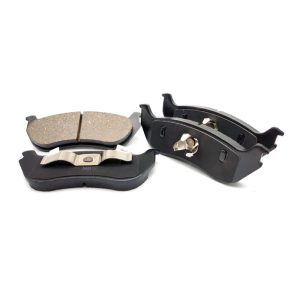


Brake pads are an essential component of any vehicle’s braking system. They are responsible for providing the necessary friction to slow down or stop the vehicle. However, like any other component, brake pads wear out over time and need to be replaced. Failing to replace brake pads in a timely manner can have serious consequences.
Here are some of the consequences of not changing your brake pads in a timely manner:
1. Reduced stopping power
As the brake pads wear, their ability to provide the friction necessary to stop the vehicle decreases. This means your vehicle will take longer to come to a stop, and in some cases, the brakes may fail completely. This is especially dangerous in emergency situations where you need to stop quickly.
2. Damage to other brake components
When brake pads wear out, they can cause damage to other brake components, such as the rotors and calipers. This can lead to more expensive repairs down the line.
3. Increased risk of accidents
As mentioned earlier, reduced stopping power can increase the risk of accidents. This is particularly true in wet or slippery conditions, where the brakes need to work harder to stop the vehicle.
4. Increased brake dust and noise
Worn brake pads can also produce more brake dust and noise. This can be a nuisance for drivers and passengers, and can also be an indicator that the brake pads need to be replaced.
5. Reduced fuel efficiency
Worn brake pads can also reduce fuel efficiency. This is because the brakes need to work harder to stop the vehicle, which can increase fuel consumption.
In summary, timely replacement of brake pads is critical to the safety and performance of your vehicle. If you notice any signs of wear or reduced braking power, it is important to replace the brake pads as soon as possible. Not only will this keep you and your passengers safe, but it will also help avoid more expensive repairs down the road.

